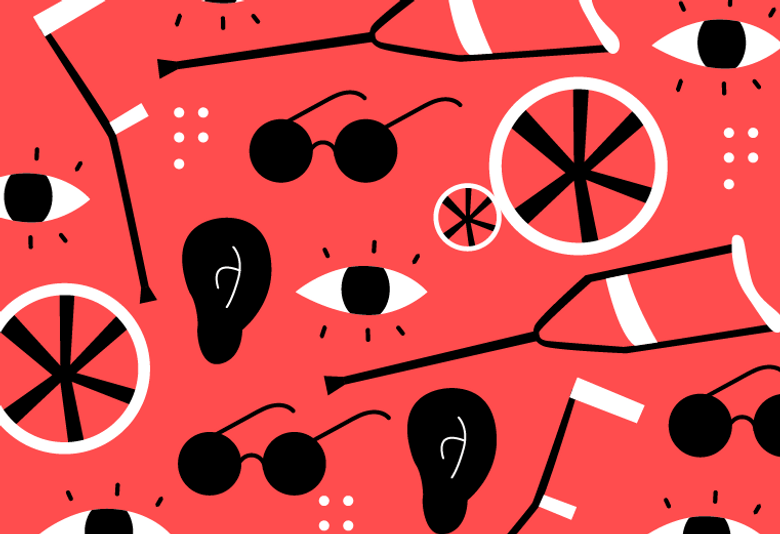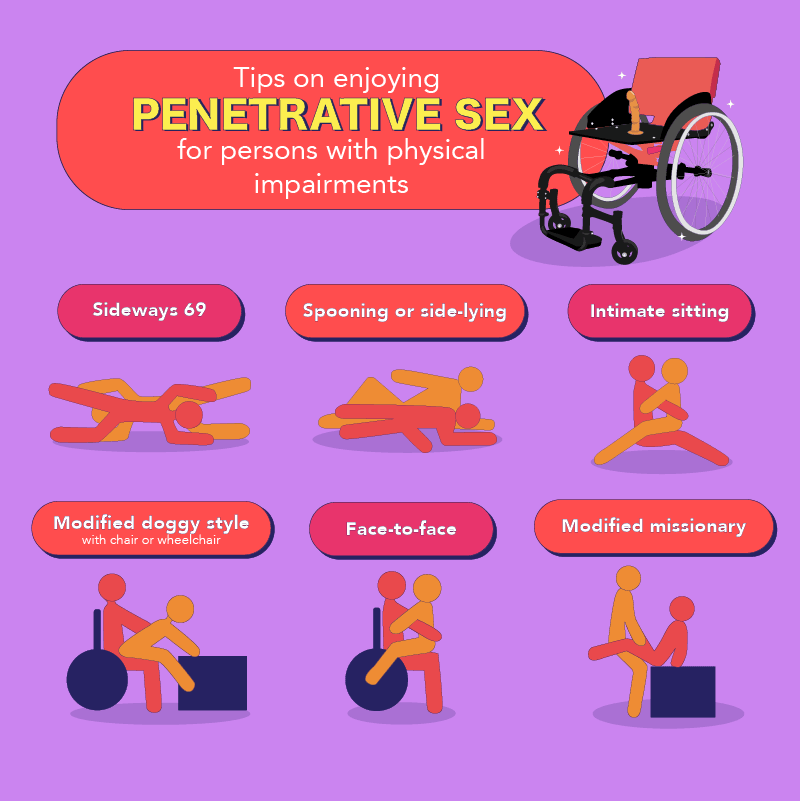As per World Health Organisation’s World Report on Disability (2011), more than one billion people in the world, i.e, 15% of the world’s population live with some form of disability, which includes physical and sensory impairments, developmental and intellectual disabilities and psychosocial disabilities. The United Nations Convention on the Rights of Persons with Disabilities (CRPD) specifies that disabled people enjoy legal capacity on an equal basis with others (Article 12), have the right to marry, found a family and retain their fertility (Article 23), and have access to sexual and reproductive healthcare (Article 23). In this vein, we must view contraception access for persons with disabilities from a rights-based and social justice lens.
Disability and sexuality
There exists a widespread misconception that all persons with disabilities are asexual (while asexual disabled people exist, not all of us are asexual) or that we should have our sexuality and fertility controlled. It is possible for disabled people to have happy and healthy sex lives. We deserve access to comprehensive and affirming information on sex, sexuality and safety.
The preconceived notion that we are not sexually active also often leads healthcare professionals to fail to offer sexual and reproductive health services to us. Forced sterilisation also has an extensive and grim history against disabled and neurodivergent folks. Acknowledging us as people capable of and interested in sexual and sensual pursuits and making decisions about our bodies is crucial to upholding our sexual and reproductive health and rights.
Note: You may also be interested in reading “Tips On Enjoying Sex While Living With A Disability”.
Using the right terminology
We’ve been taught to refer to disabled people using person-first language, for example, instead of calling me an autistic person, there are well-meaning healthcare professionals who insist on saying ‘person with autism’. However, that makes me feel like my disability/ neurodivergence is shameful or something that requires treatment.
Personally, I find using identity-first language empowering because my disability is indistinguishably linked to who I am and my experiences in the world, especially when it comes to reproductive justice. While disability is not a bad word, remember that each disabled person is unique. Someone might have a preference that differs from others in their community, so refrain from abled-splaining (able-bodied/ minded people explaining a disabled person’s experience to them in a condescending manner). Prioritise lived experiences, listen to us, learn from us and don’t evade accountability for the world we currently live in by quoting academic articles to us.
Sexuality and contraceptive counseling
Despite the evidence that many of us are sexually active, there is very little to no access to contraception education and comprehensive sexuality education at large to promote our sexual health and positive experiences of sexual exploration and relationships. Counseling for disabled adolescents and young people is paramount as our comorbidities and our socio-sexual competence (encompassing self-esteem, assertiveness, control and communication skills) need to be taken into consideration. Depending on the nature of our disability, different folks have varying degrees of said competence and healthcare professionals must strive to improve our access to safer sex practices, including an understanding of consent from our location.
Note: You may also want to read our blog “The perception of sexuality with a disability”.
Disability is not a monolith
There exists a pressing need for healthcare professionals to develop a unique protocol for each patient. They must recognise the barriers to sexual citizenship for disabled people and structural changes to healthcare must cater to our specific needs and triggers. For instance, sensory issues may result in a person being averse to things that trigger their senses, such as light, sound, touch, taste, or smell which can make experiences such as using certain methods of contraception or abortion challenging for us. Oral contraceptives and hormonal implants may prove to be detrimental for people with a spinal cord injury, disabled by a stroke, etc. and may cause circulatory disorders. Some of us may not be able to remember to take our oral contraceptives regularly, so hormonal implants may be a more viable form of birth control. Condoms are the only form of birth control that prevent both unwanted pregnancies and STIs. However, this method is only feasible if a disabled person or their partner is able to put them in place. Caregivers and healthcare professionals must actively enable us to seek fulfilling love, romance, relationships, sex and pleasure if we so desire to.
Actionable steps
- Avoid making assumptions about the person’s needs based on your understanding of their disabilities. Offer them the full range of contraceptive methods and enable informed decision-making.
- Foster inclusive conversations with the patients and their caregivers (if required) on sexual and reproductive health topics such as consent and abuse, STI prevention, pregnancy intentions, contraception options, etc.
- Use pamphlets and information material that represent the experiences of disabled people and their bodies accurately. Ensure that these are written and designed to be comprehensible at the patient’s cognitive level.
- Learn from lived experiences, there’s nothing more valuable than meeting and talking with people with disabilities to learn how one can make services more respectful and accessible. Attend/ organise such trainings and workshops periodically to be able to provide disability affirmative care.
About the author
Apurupa Vatsalya is a Sexuality Educator & Disability Rights Advocate.
Apurupa is a lawyer-turned-sexuality educator, POSH trainer and is a neuroqueer affirmative practitioner. They have been researching, creating modules and teaching rights-based CSE workshops for young people between the ages of 6-25 years, their parents and educators for 5+ years. In addition to this, they have conceptualized and facilitated courses and safe spaces addressing themes of pleasure activism for women and gender diverse folks. They also work with young adults to enable them to understand and comply with anti-harassment workplace laws. Apurupa leads the Sexual and Reproductive Health and Rights endeavours at The YP Foundation. Their work is at the intersections of gender, sexuality, safety, body neutrality, and identity, and their interplay with mental health, disability and social justice.
Apurupa Vatsalya Linkedin profile.
Do you have something to share? Leave your comments below, contact us on our social media platforms: Facebook, Instagram, Twitter, YouTube and TikTok, send us an email to info@findmymethod.org. For more information on contraception, visit findmymethod.org.

